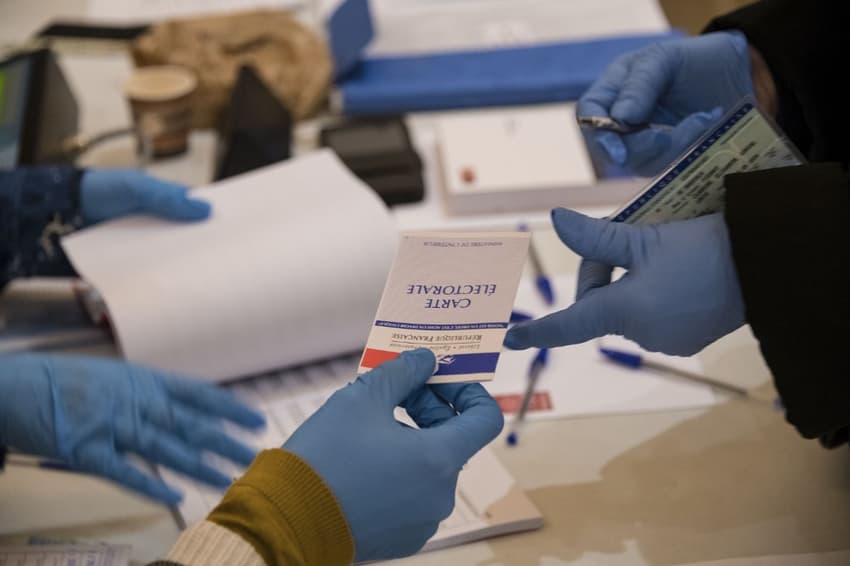France to hold second round of disrupted municipal elections in June

France will hold on June 28th the second round of municipal elections that were called off in March after the country locked down to curtail the coronavirus outbreak, Prime Minister Edouard Philippe said on Friday.
Philippe said the government's scientific advisory panel had estimated that sufficient safeguards could be taken to mitigate contagion risks for the nearly 5,000 cities and towns set to vote.
The municipal elections decide on local officials from village mayors to more high profile jobs like the Mayor of Paris.
READ ALSO What you need to know about France's municipal elections
Like presidential elections, municipal elections in France have a two-step voting process. The first round of voting took place on Sunday, March 15th but just two days later the country locked down and the second round - set for March 22nd - was scrapped.
"After weighing the pros and cons, we believe that our democratic life must resume," Philippe said at a press conference in Paris.
But he said the government would call off the vote again if health advisors warned that a new flare-up of COVID-19 cases made calling people to the polls too risky.
Interior Minister Christophe Castaner, also at the press conference, said the roughly 16 million voters in the second round, including residents of Paris, Lyon and other large cities, would have to wear masks.
The first round of voting produced an outright winner in many of France's smaller communes but around 5,000 places - mostly the larger towns and cities - will move to a second round of voting to determine who is elected.
The government drew heavy criticism after going ahead with the first round of voting just one day after ordering all bar, restaurants, cinemas and other non-essential businesses to close in the coronavirus fight.
The lockdown prompted many voters to stay home, with the abstention rate hitting a French record of 55 percent.
In Paris the incumbent Socialist Mayor Anne Hidalgo is attempting to hold on to her seat, while across the rest of the country president Emmanuel Macron's La République en Marche party had been predicted to face heavy losses.
READ ALSO The (very complicated) rules for electing the mayor of Paris
Comments
See Also
Philippe said the government's scientific advisory panel had estimated that sufficient safeguards could be taken to mitigate contagion risks for the nearly 5,000 cities and towns set to vote.
The municipal elections decide on local officials from village mayors to more high profile jobs like the Mayor of Paris.
READ ALSO What you need to know about France's municipal elections
Like presidential elections, municipal elections in France have a two-step voting process. The first round of voting took place on Sunday, March 15th but just two days later the country locked down and the second round - set for March 22nd - was scrapped.
"After weighing the pros and cons, we believe that our democratic life must resume," Philippe said at a press conference in Paris.
But he said the government would call off the vote again if health advisors warned that a new flare-up of COVID-19 cases made calling people to the polls too risky.
Interior Minister Christophe Castaner, also at the press conference, said the roughly 16 million voters in the second round, including residents of Paris, Lyon and other large cities, would have to wear masks.
The first round of voting produced an outright winner in many of France's smaller communes but around 5,000 places - mostly the larger towns and cities - will move to a second round of voting to determine who is elected.
The government drew heavy criticism after going ahead with the first round of voting just one day after ordering all bar, restaurants, cinemas and other non-essential businesses to close in the coronavirus fight.
The lockdown prompted many voters to stay home, with the abstention rate hitting a French record of 55 percent.
In Paris the incumbent Socialist Mayor Anne Hidalgo is attempting to hold on to her seat, while across the rest of the country president Emmanuel Macron's La République en Marche party had been predicted to face heavy losses.
READ ALSO The (very complicated) rules for electing the mayor of Paris
Join the conversation in our comments section below. Share your own views and experience and if you have a question or suggestion for our journalists then email us at [email protected].
Please keep comments civil, constructive and on topic – and make sure to read our terms of use before getting involved.
Please log in here to leave a comment.